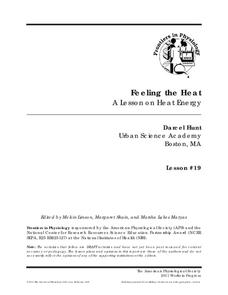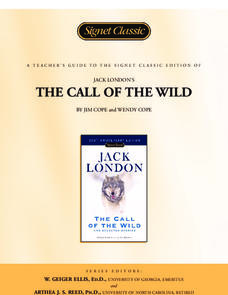Curated OER
Gilded Age Politics
Whisk your students through the politics of the Gilded Age with this presentation, which features the contexts and characteristics of the 1880-1888 Presidential Elections. Clever political cartoons and clear, concise bullet points about...
Equality and Human Rights Commission
Learning area 5: Job Done!
Four activities conclude a unit through discussion and activities inspired by reflection. Scholars revisit their storybook from the first unit. Self-portraits showcase thought bubbles with written statements. Groups write and perform a...
Curated OER
The Great Depression and New Deal
Elementary pupils are introduced to the Great Depression as a critical period of hardship in United States history. They engage in collaborative assignments researching the Dust Bowl, the New Deal, US presidents, and presidential libraries.
Curated OER
Listening To The Prairie
Students investigate the concept of agriculture and how it is part of the ecology and economy of the United States. They participate in a number of different classroom activities intended to raise agricultural awareness. The activities...
Education World
Every Day Edit - Tunisia
For this everyday editing worksheet, students correct grammatical mistakes in a short paragraph about Tunisia. The errors range from punctuation, capitalization, grammar, and spelling.
Smithsonian Institution
What's the Code? Coding Robot Movements Using Sound
Tap into the desire to learn about computer codes. Pupils apply the Tap Code and the Polybius Square to send secret codes using sound. They design a code that tells a robot what movements to make and then test out their code using one of...
Curated OER
Plant Biology
Young biologists discuss the reasons behind the current use of the plant identification system. They get into groups and identify the characteristics of each species of plant which is described. The keys needed for groups to make...
Curated OER
A Cost-Effective Model of Teacher Development
As funding for staff-development days dwindles, Professional Learning Communities offer a no-cost alternative for professional development.
NASA
The Case of the Wacky Water Cycle
Join the tree house detectives in learning about the processes of the water cycle, water conservation, water treatment, and water as a limited resource.
American Physiological Society
Thermal Insulators: Keep it Hot!
There's nothing like a cup of hot chocolate on a chilly winter's day. Except for when that hot chocolate quickly becomes lukewarm chocolate ... or even cold chocolate. What material provides the best insulation to keep the chocolate from...
American Physiological Society
Did I Observe it or Infer it?
Take the mystery out of inquiry! When young scientists learn to use their keen powers of observation to make smart inferences about a situation, they are well on their way to understanding what the scientific method is all about. Using...
American Physiological Society
It’s the Heart of the Matter
Get the class jumping for joy with a fascinating look at matters of the heart. Learners perform physical tasks, collect and analyze heart rate data, and study conditions that affect heart health. Use the action-packed lesson plan to...
American Physiological Society
What Environmental Conditions Lead to the Hatching of Brine Shrimp?
Will changing the environment in which brine shrimp live impact their reproductive success? Young scientists get hands-on experience studying the habitat of brine shrimp in a two-week immersion lesson. The teacher's guide provides all of...
American Physiological Society
How Does the Density of a Liquid Affect the Buoyancy of an Object?
Here's a lesson plan that will really float your boat! Introduce physical science scholars to the relationship between buoyancy and density through an assortment of individual and collaborative exercises. Lab groups work together to...
American Physiological Society
Why is Kettle Corn Cooked in Copper Pots?
The kitchen — it's not just for eating anymore! Specific heat is often a difficult concept to grasp, so give it context by relating it to cooking. Learners gain experience in the principles of thermal energy transfer by designing an...
American Physiological Society
Sit On It
How do product designers come up with the variety of things we see in stores and on TV every day? They identify a need, then create something that meets that need. Sounds simple, right? A two-week instructional activity puts seventh...
American Physiological Society
Feeling the Heat
How do the changing seasons affect the homes where we live? This question is at the forefront of engineering and design projects. Challenge your physical science class to step into the role of an architect to build a model home capable...
Curated OER
Cartoons in the Classroom: The Stimulus Package
A large pig labeled "Stimulus Package" wrapped in an American flag is the primary image on this political cartoon. Ready for analysis, this worksheet provides learners with the opportunity to understand the pros and cons of US spending...
Curated OER
Introducing: National Transportation Week
Focus your attention in the classroom to recognize the importance of our nation's transportation systems.
Perkins School for the Blind
Kitchen Clean-up
If you make a meal, you must clean up the mess. Foster a sense of independence while having learners practice a skill they can use in the workplace. Teens with visual impairments practice cleaning, organizing, stacking, and sorting a...
Kenan Fellows
Terrarium in a Bottle: Modeling the Atmosphere, Greenhouse Effect, and Water Cycle
You've heard of farm to table ... but what about farm in classroom? Junior agriculturalists embark upon a two-week journey into the science of growing things. Based upon the classic terrarium in a two-liter experiment, the lesson goes...
NET Foundation for Television
1850-1874 Beef Moves to Nebraska
Just how long was the Long Drive? Learners investigate the movement of cattle in the Great Plains during the mid-1800s. They incorporate photographic, newspaper, video, and primary source evidence into their posters, artwork, and written...
Penguin Books
A Teacher's Guide to the Signet Classics Edition of Jack London's The Call of the Wild
The Yukon provides plenty of opportunity for adventure. A study guide for The Call of the Wild by Jack London, also the author of White Fang, helps readers navigate the novel which is set in Yukon, Canada. Chapter summaries give a quick...
Center for History Education
To What Extent Were Women's Contributions to World War II Industries Valued?
Women rose to the challenge when the nation's war effort called them—but were sent home when the GIs came back from World War II. Young historians consider whether the United States valued women's contributions during the war using a...

























